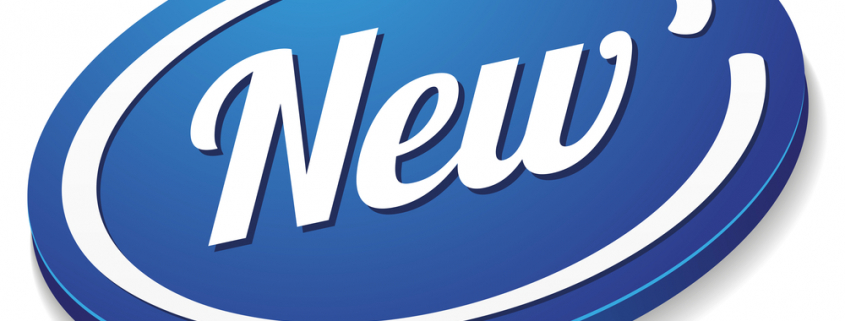Expertise in recruiting, hiring and placements and customer service sets the best staffing companies apart from their competitors, and the same holds true for the best staffing agency factoring companies. Here are the questions to ask when considering which invoice factoring company to choose.
What the Best Staffing and Temp Employment Factoring Companies Do
The business model of most staffing agencies and temporary employment agencies makes invoice factoring almost a must-have financing tool. With time, money, and payroll expenses preceding client payments by weeks (or even longer), factoring staffing invoices can provide an employment agency with improved, more consistent cash flow, the money needed to cover operating expenses and payroll, and funding that can be reinvested more quickly to help the agency grow.
Evaluate Staffing Agency Factoring Companies by 9 Measures
Companies that factor invoices for temporary employment agencies and staffing agencies have policies and contracts governing the way that they do business. These practices can vary widely and there can be all kinds of hidden fees or potential penalties in the fine print. It is important to ask questions and read the fine print that resides in the contracts and agreements staffing agency factoring companies require clients to sign.
Depending on which terms are most important to your agency, we can design an agreement for your agency with these types of characteristics:
1. Retain Control: Factor only when it is in the best interests of your staffing agency! You will not be required to factor a minimum number or dollar amount of invoices. Plus, you may have the option of retaining control of sending invoices or delegating the work of generating and mailing invoices to the factoring company, thereby reducing the amount of money and time needed for receivables management in the process.
2. Professional Customer Service: A high level of service and performance earns client patronage and referrals.
3. Competitive staffing agency factoring fees and factoring with low or even no holdbacks.
4. Competitive Advances: Clients often receive up to 95% of the face value of invoices factored (or even higher on large invoices or with volume discounts).
5. No Long Term Contracts: No requirement to sign long term contracts; we want to earn your repeat business and referrals through performance.
6. No Early Termination Fees or Hidden Auto-Renewal Windows: Check the fine print! Some factors charge hefty early termination fees and hide other penalties in auto-renewal windows that might require as much as 120 days advance notice. Early withdrawal penalties are often as high as 10% of a client’s line of factoring credit, making them almost un-payable.
7. Non-Recourse Factoring: Non-recourse factors assume the credit risk for invoices purchased, which reduces (or completely eliminates) the client’s financial risks from bad debt.
8. Fast funding with no added funding fees.
9. Transparency—No hidden fees: Factoring agreements that are free of application fees, notification fees, reserve release fees, schedule or invoice processing fees, credit check or due diligence fees – any / all of which can drive up the real cost of receivables financing.
We understand that the way a company does business day in and day out is what builds its reputation and long-term success and offer staffing agency factoring programs that reflect the clients’ needs and preferences.
When we help you evaluate the pros and cons of staffing agency factoring companies, we work through questions like these so you can decide which agreement is best for your business. Use this checklist to evaluate which staffing agency factoring companies you should consider as a partner who can help you grow:
- What is the factoring fee structure?
- Can I get a free quote?
- Are there costs for setting up my account or doing due diligence?
- What are the terms?
- How long does it take to get set up?
- How quickly will I receive funding on factored invoices?
- How do you evaluate debtors?
- Can I retain control of my invoicing?
- Do you have monthly minimum requirements?
- Will I have to sign a long-term contract?
- Is there a penalty for early termination?
- Is there an auto-renewal window?
- How fast can you process invoices?
- Can I get fast funding?
- Do you charge for processing invoices or schedules for payment?
- Can I get credit checks on my customers?
- Are you a non-recourse factor?
- Do you have the capital to grow with me?
How Factoring Benefits Staffing and Temporary Employment Agencies
Let’s say that your agency has been working hard to land a big employer in your area, and they’ve finally given you a chance to earn their business. It is a great opportunity, but one that comes with financial challenges, too.
For instance, you may need to quickly flood several recruiting channels with new ads and place sponsored content on social networks. With applications coming in, you also need to interview candidates and conduct background and possibly even drug testing of all viable candidates. For those selected and placed, you will then need to meet one or even two payroll runs – all before your client’s first invoice is due!
This dynamic is unique to the temporary employment and staffing industry and makes invoice factoring such a valuable cash flow management tool for staffing agencies. Factoring invoices allows your staffing or temporary employment agency to access the money that is locked down in accounts receivables.
Leveraging assets on the books frees up working capital for faster reinvestment in the agency and ensures your agency will have the money needed to meet payroll and cover expenses such as the advertising and marketing costs incurred to attract new employers or fill your talent pool with qualified candidates. Here’s how it works:
- Complete services for a client and generate an invoice, then factor the invoice for a small fee.
- Receive a fast advance of a large percentage of the face amount of the invoice, with any remainder held in reserve (a.k.a. “a holdback”)
- Your customer remits full payment, then any reserve (or holdback) amount is returned to you.
In addition to the immediate benefit of improving cash flow, your staffing agency also benefits in other ways by factoring invoices. Factoring with a non-recourse factoring company reduces – or even eliminates – your organization’s financial risk from bad debt.
Factoring means less time and resources needed to manage receivables and perform collection-related tasks. Plus, having more money on hand could allow you to negotiate better terms with your suppliers or extend more favorable payment options to your customers, creating a competitive advantage. Take the next step and work with one of the best staffing agency factoring companies.
Request a quick quote! This service doesn’t cost you anything, but it will save you time and you can take advantage of our expertise to assist in evaluating proposals.












